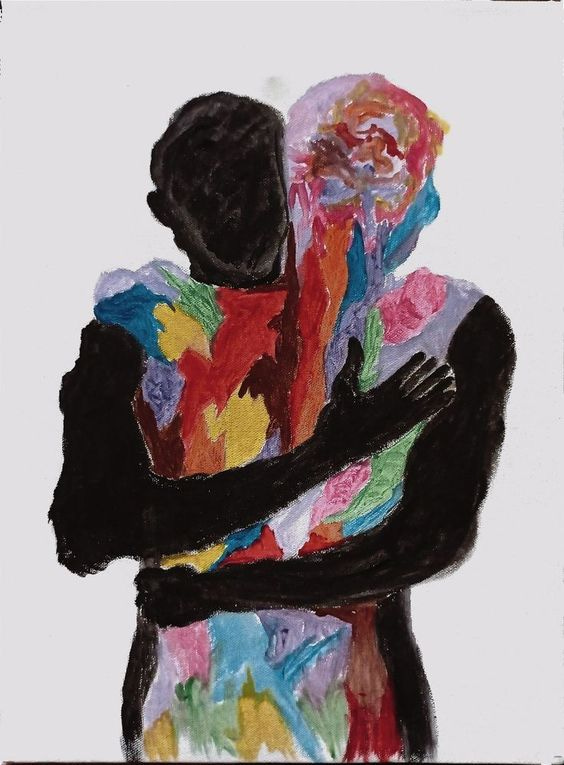it’s a curious thing, the way life molds us into who we are today. we grow, change, adapt, and sometimes, without even noticing, we become the very person we needed most when we were younger. as children or teenagers, we often feel lost, uncertain, or misunderstood, and there’s a yearning for someone to come along and show us the way, to save us from the mistakes we haven’t even realized we’re making yet. but as we grow older, it becomes clear that no one is coming to save us. and so, we save ourselves by becoming that person we needed in the first place.
the thought that we become whoever would’ve saved our younger self is both comforting and bittersweet. it’s comforting because it suggests that, no matter how difficult our younger years were, we have the potential to grow into someone capable of providing the guidance, strength, and wisdom we lacked. but it’s also bittersweet, because it implies that the person we needed wasn’t there, and perhaps the lessons we’ve learned were born out of the pain and struggle of navigating life without that guide.
when i reflect on my own experiences, i can’t help but think about the uncertainty of adolescence. i remember being unsure of myself, caught between who i wanted to be and who the world expected me to become. there were moments of deep self-doubt, where i longed for reassurance, for someone to tell me that it was okay to not have all the answers, that it was okay to be different, to carve my own path. i needed someone who could see me, really see me, and offer the kind of wisdom that only comes from having walked the road themselves.
back then, i thought that person was missing from my life. but now, as an adult, i realize that maybe they were just waiting to emerge from within me.
as we move through life, the experiences we go through shape us. every mistake we make, every obstacle we overcome, every heartbreak, every moment of joy—all of it becomes part of who we are. and in some ways, those experiences teach us how to be the person we needed when we were younger. we learn strength from the challenges we face. we learn empathy from our moments of loneliness. we learn patience from the times when life doesn’t go as planned. and slowly, we start to embody the qualities we wish someone had shown us in our youth.
i also think there’s something to be said about the concept of self-parenting—the idea that, at some point, we start to take on the role of the caregiver or protector that we once needed. we learn to provide ourselves with the support and encouragement that we may have lacked. in doing so, we become more self-sufficient, more capable of navigating life’s challenges. it’s as though we’re retroactively healing our younger selves by becoming the person who would’ve saved us.
of course, this process isn’t always easy. it requires a great deal of self-reflection and honesty. we have to confront the parts of our past that are painful, the moments where we felt abandoned or alone. we have to acknowledge the ways in which we may have been let down, by others or by ourselves. but in doing so, we also gain the opportunity to rewrite the narrative, to become the hero of our own story.
in a way, it’s empowering to think that we have the ability to become the person our younger self needed. it’s a reminder that we’re not helpless, that we have agency over our own lives. we can take the lessons we’ve learned and use them to help ourselves and others. we can offer the kind of guidance and support that would have made all the difference to us back then.
but there’s also a sense of responsibility that comes with this realization. if we have the power to become the person who would’ve saved our younger self, then we also have the power to be that person for others. we can show up for the people in our lives in ways that matter, offering them the support, kindness, and wisdom that we once craved. in doing so, we create a ripple effect of healing, breaking the cycle of loneliness or doubt that might otherwise persist.
so, what does it mean to become the person who would’ve saved our younger self? i think it means learning to trust ourselves, to listen to our intuition, and to honor our own needs. it means being kind to ourselves, even when we don’t feel like we deserve it. it means taking risks, even when we’re scared, because we know that growth comes from stepping outside of our comfort zone. and perhaps most importantly, it means recognizing that we are enough, just as we are.
looking back, i can see the ways in which i’ve evolved into the person my younger self would have looked up to. i’ve become more confident, more grounded, more sure of my place in the world. and while there are still moments of doubt or uncertainty, i know that i have the tools to navigate them, because i’ve become the person who can.
in the end, we all have the potential to become whoever would’ve saved us from our younger self. it’s a process of growth, of learning, and of healing. and while we can’t change the past, we can create a future where we’re not only capable of saving ourselves, but also of being there for others in the way we once needed. after all, isn’t that what it means to grow up?





definitely needed to hear this. very well written
this was so beautiful, god